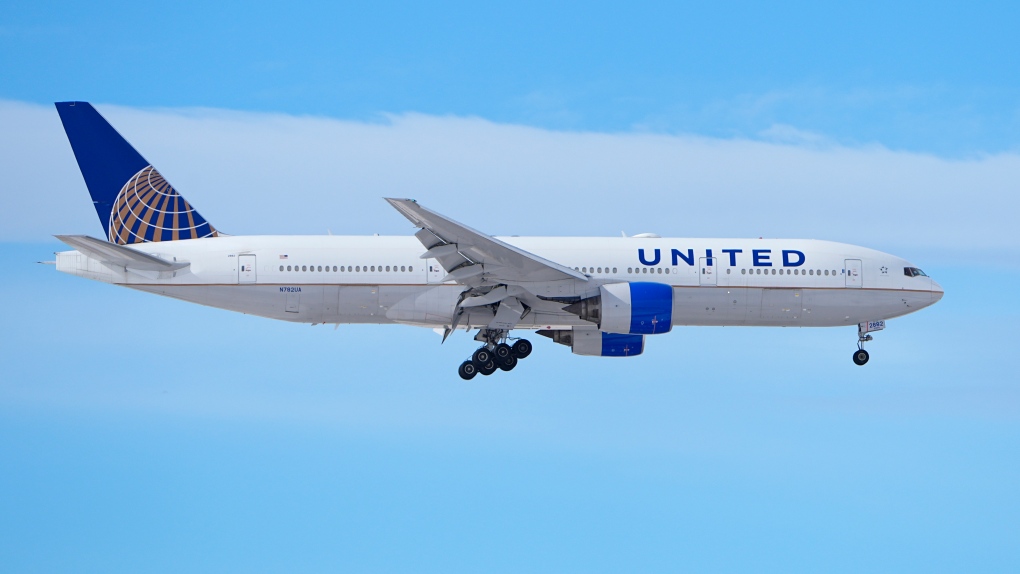United Airlines Faces Loss From Boeing 737 Max 9 Grounding
Explore the latest news on how United Airlines faces loss from Boeing 737 Max 9 grounding, including its financial impact, FAA decisions, and future outlook for the airline industry.
Author:Darren McphersonReviewer:Dexter CookeJan 24, 20241.9K Shares43K Views

In a recent development that has shaken the aviation industry, United Airlines faces loss from Boeing 737 Max 9 groundingby the Federal Aviation Administration (FAA). This decision came after a critical incident during an Alaska Airlines flight operated with the same type of aircraft, where a door plug blew out, raising serious safety concerns.
Financial Impact of FAA's Decision on United Airlines
United Airlines, which has the largest fleet of these aircraft, with 79 planes, has had to cancel hundreds of flights and is now forecasting a considerable loss for the first quarter of the year. The airline expects to post an adjusted loss of between 35 cents and 85 cents a share for the first three months, a stark contrast to its performance in the previous quarter.
"United said it expects unit costs, excluding fuel, to be up mid-single-digit percentage points in the first quarter from last year, three points of that impact coming from the Max grounding," the airline stated, highlighting the significant financial impact of this incident.
This setback comes after a relatively strong holiday period for United Airlines. Despite facing several winter storms in the early weeks of January, the airline had been performing well. Its shares even saw an increase of more than 6% in after-hours trading following the announcement.
United Airlines' Previous Quarter Performance And Outlook
Looking back at the last three months of 2023, United reported a net income of $600 million, though this was nearly 29% lower than the previous year. However, its revenue showed a positive trend, with an increase of almost 10% from the year earlier, amounting to $13.63 billion and surpassing analysts’ expectations.
The airline's performance in the fourth quarter, as reported against Wall Street's expectations, was noteworthy:
- Adjusted earnings per share:$2.00, compared to the expected $1.69.
- Total revenue: $13.63 billion, versus the anticipated $13.54 billion.
Achieving its full-year adjusted earnings target, United posted $10.05 per share for the year 2023.
"Despite unpredictable headwinds, we delivered on our ambitious EPS target that few thought possible — and set new operational records for our customers," United Airlines CEO Scott Kirby said in an earnings release.
The airline also forecast adjusted earnings of between $9 and $11 a share for the full year 2024, aligning with analysts' predictions.
However, the recent FAA grounding of the Boeing 737 Max 9 planes has cast a shadow over these achievements. The unexpected incident on Alaska Airlines Flight 1282 on January 5th led to the immediate grounding of these aircraft, affecting both United and Alaska Airlines.
Broader Impact And Future Considerations
This grounding has not only disrupted United's current operations but also its expansion plans. The airline warned that deliveries of new Boeing planes, including 737 Max 9s and the yet-to-be-approved Max 10, will likely be delayed.
In a statement, CEO Scott Kirby expressed frustration but stopped short of canceling orders with Boeing, indicating that the airline is considering alternatives.
In response to these challenges, Boeing has faced government investigations into its manufacturing process.
Stan Deal, head of Boeing's commercial airplanes division, acknowledged the company's shortcomings, stating, "We have let down our customers and are deeply sorry for the significant disruption to them, their employees, and their passengers."
The FAA's decision also extends to another older 737 model, the 737-900ER, used by United, which requires inspections due to a similar door design. However, this model has not been grounded, allowing for visual inspections to be conducted by operators.
Conclusion
As United Airlines and the aviation industry navigate through this turbulence, the focus remains on ensuring safety and minimizing disruptions. This incident serves as a reminder of the intricate interdependence within the aviation sector, where a single safety concern can have far-reaching financial and operational implications.

Darren Mcpherson
Author
Darren Mcpherson brings over 9 years of experience in politics, business, investing, and banking to his writing. He holds degrees in Economics from Harvard University and Political Science from Stanford University, with certifications in Financial Management.
Renowned for his insightful analyses and strategic awareness, Darren has contributed to reputable publications and served in advisory roles for influential entities.
Outside the boardroom, Darren enjoys playing chess, collecting rare books, attending technology conferences, and mentoring young professionals.
His dedication to excellence and understanding of global finance and governance make him a trusted and authoritative voice in his field.

Dexter Cooke
Reviewer
Dexter Cooke is an economist, marketing strategist, and orthopedic surgeon with over 20 years of experience crafting compelling narratives that resonate worldwide.
He holds a Journalism degree from Columbia University, an Economics background from Yale University, and a medical degree with a postdoctoral fellowship in orthopedic medicine from the Medical University of South Carolina.
Dexter’s insights into media, economics, and marketing shine through his prolific contributions to respected publications and advisory roles for influential organizations.
As an orthopedic surgeon specializing in minimally invasive knee replacement surgery and laparoscopic procedures, Dexter prioritizes patient care above all.
Outside his professional pursuits, Dexter enjoys collecting vintage watches, studying ancient civilizations, learning about astronomy, and participating in charity runs.
Latest Articles
Popular Articles